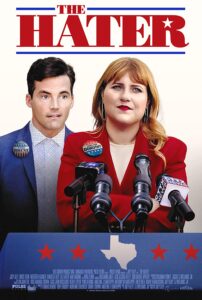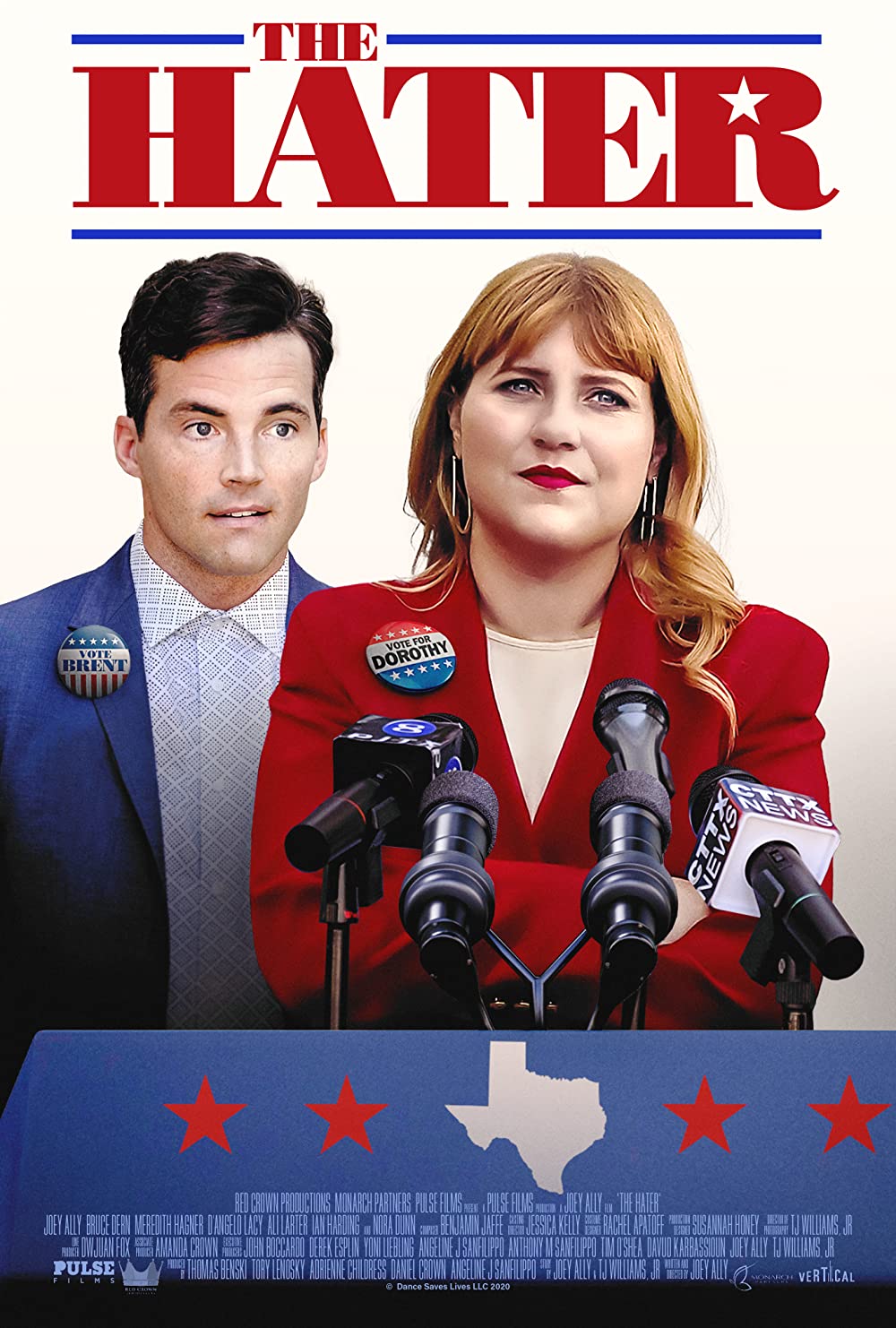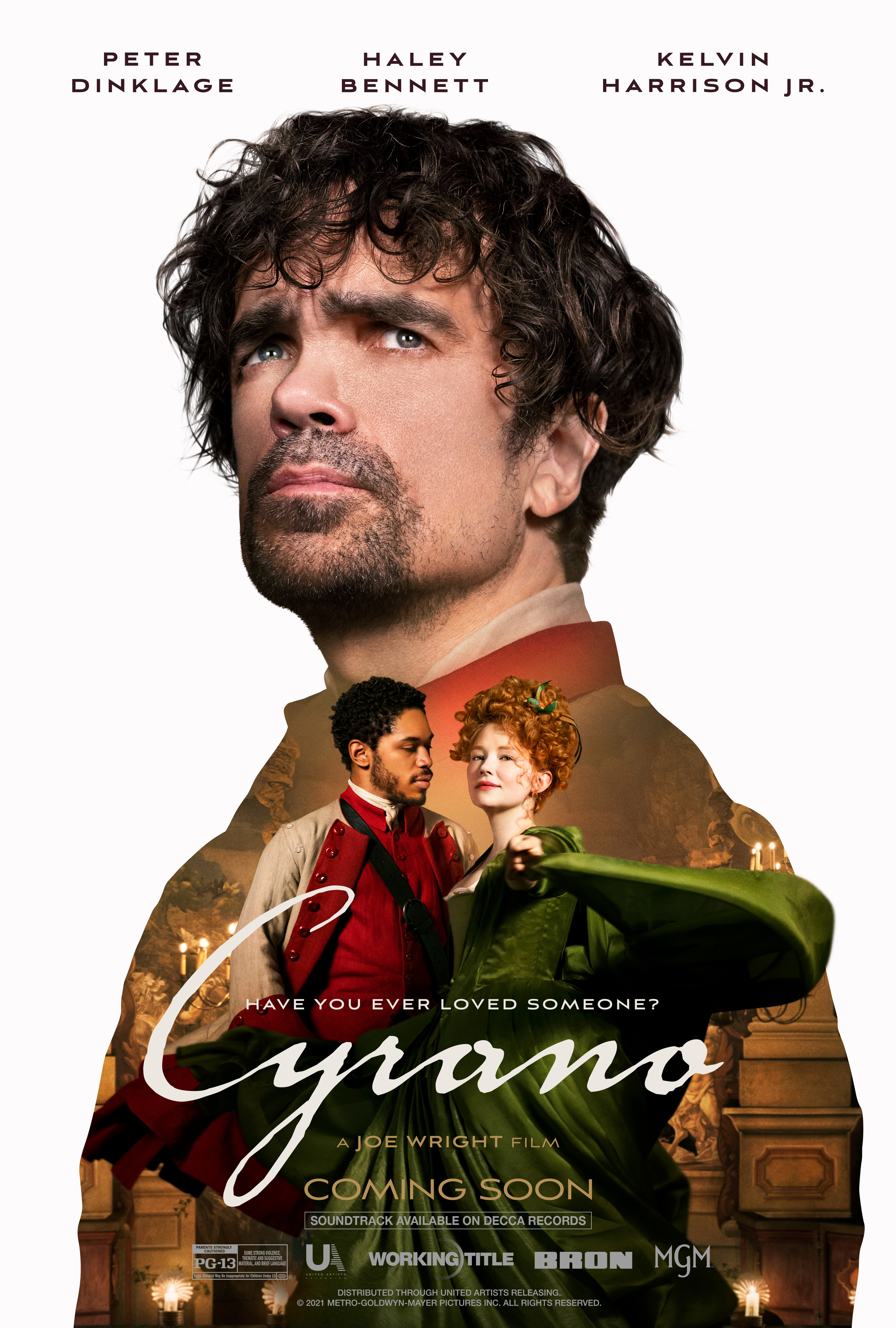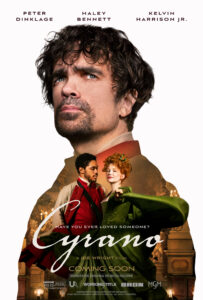The Hater
Posted on March 17, 2022 at 12:30 pm
B-| Lowest Recommended Age: | High School |
| Profanity: | Strong language |
| Alcohol/ Drugs: | Alcohol, vaping marijuana |
| Violence/ Scariness: | Tense confrontations, oblique reference to suicide |
| Diversity Issues: | A theme of the movie |
| Date Released to Theaters: | March 18, 2022 |

Newcomer Joey Ally takes on the challenge of writing, directing, and starring in her first film, “The Hater,” the story of a far-left political speechwriter who ends up running in a Republican primary in her a right-wing community. She is better as a writer than a director and better as a director than an actor, but the screenplay is strong enough to overcome some rookie mistakes.
Ally plays Dorothy, as in Oz, who is fired in the film’s first few minutes after a viral video appears to show her burning a flag at a demonstration. She has to leave Washington to return to a place she could not wait to get away from, her home town in Texas. Her grandfather (Bruce Dern in grumpy mode) is not happy to see her, but she reminds him that she is half-owner of the house, and he lets her in.
She tries to find a job with a progressive candidate or cause, but no one wants her. Then she sees that there is a primary coming up, and her childhood nemesis, Brent Hart (Ian Harding), is running unopposed. His father is a Senator. He twice took the local high school football team to State. He is handsome and personable. The Democrat who will run against him is a woman who has already lost three times. There seems to be no way to beat him.
Unless.. .If Dorothy runs against Brent and defeats him and then withdraws, according to local rules the Republican party cannot nominate anyone else, and so the Democrat could win. So, she goes out to collect some signatures to get on the ballot. It does not go very well until she accidentally goes viral again, this time for defeating an armed robbery in a convenience store. She looks like a gunslinger, but really it was just muscle memory from color guard in high school.
Dorothy’s one-time high school friend (Meredith Hagner), whose husband is deployed in the military, opposes Brent because he plans to tear down the community center where she works. So, she signs on as Dorothy’s campaign manager. And Glenn (D’Angelo Lacy), Dorothy’s best friend and roommate from Washington, shows up for a Red State make-under. Off with the nose ring. On with clothes from her late grandmother, picked from boxes in the attic.
The best thing about the movie is its refusal to make any character one-dimensional or completely unsympathetic, especially when we find our own expectations challenged.
NOTE: I have a connection to this movie because my daughter, Rachel Apatoff, was the costume designer. Needless to say, the costumes, which are an essential element of the film, are brilliant.
Parents should know that this movie has very strong language, discussion of abortion, and some drug use.
Family discussion: How did Dorothy shade the truth in her campaign comments? How did her father’s death affect her choices? Which character would you vote for?
If you like this, try: “Dick” and “In the Loop”









